|

|
|
|
|
 |
STRAITS : British policy towards the
Ottoman Empire and the Origins of the
Dardanelles Campaign © Geoffrey Miller |
|
|
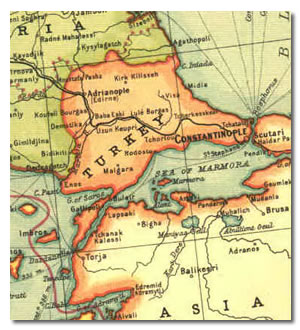 |
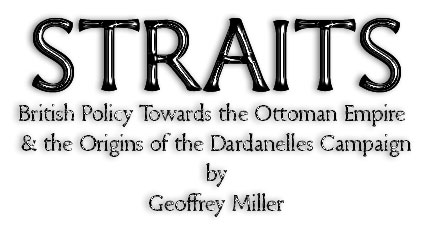 |
|
Volumes I and III of
The Straits Trilogy
|
|
“Superior Force” and
“The Millstone”
|
|
|
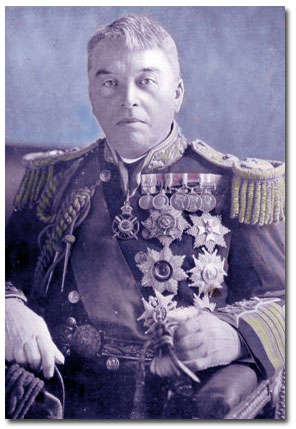
Admiral Sir John
Arbuthnot Fisher |
THE ROYAL
NAVY IN THE MEDITERRANEAN 1900 - 1915
The "Straits Trilogy" by
Geoffrey Miller
- Volume I: Superior Force : the
conspiracy behind the escape of Goeben
and Breslau
- Volume II: Straits : British Policy
towards the Ottoman Empire and the
Origins of the Dardanelles Campaign
- Volume III: The Millstone : British
Naval Policy in the Mediterranean,
1900-1914, the Commitment to France and
British Intervention in the War
These books provide a comprehensive
account of British naval and diplomatic
policy in the two decades prior to the Great
War, focusing in particular on the escape of
the German ships Goeben and Breslau
[Superior Force], the origins of the
Dardanelles Campaign [Straits], and the
political and diplomatic imperatives behind
the British decision to enter the war in
August 1914 [The Millstone].
Please note that, in addition to this
site, each book has its own, dedicated,
web-site.
At two of these sites, the full text is
available on-line:
www.superiorforce.co.uk [Superior
Force first eight chapters]
www.dardanelles.co.uk [Straits
complete text]
www.the-millstone.co.uk [The
Millstone complete text]
TO GO TO
ANY OF THESE DEDICATED WEB SITES,
PLEASE SELECT A BOOK COVER BELOW.
|
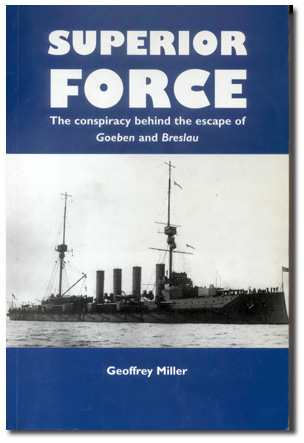 |
Superior Force
The Conspiracy Behind the Escape of Goeben
and Breslau
xxiii + 458 pages, 20 illustrations, 2 maps
Full bibliography, notes and index
Card cover, 6¼" x 9¼"
ISBN 0 85958 635 9
Published 1996
To go to the dedicated web-site for
"Superior Force", please click:

The full text is available
on-line at
www.superiorforce.co.uk |
 |
| SUPERIOR FORCE
SYNOPSIS
In the first weeks of August, 1914 the
German battle cruiser, Goeben, and her
accompanying light cruiser, Breslau, escaped
the clutches of the pursuing British
Mediterranean Squadron and took refuge at
Constantinople, where they would later exert
a decisive influence upon Turkey’s attempts
to remain out of the war.
In October 1914, with the connivance of the
Turkish Minister of War, but against the
wishes of the majority of the Turkish
Cabinet, the German Admiral at the head of
the Turkish Navy single-handedly forced the
issue. At the helm of Goeben, Admiral
Souchon manoeuvred into the Black Sea and
deliberately shelled Russian ships, ports
and shore installations. The Turks,
reluctant to the last, were finally
catapulted into the War. Yet, would this
outcome have eventuated without the presence
of Admiral Souchon and Goeben? The Turkish
fleet by itself was too weak to risk a
sortie in the Black Sea. Without Goeben
could the issue have been forced?
Meanwhile, the First Lord of the Admiralty,
Winston Churchill, actively sought Greek
co-operation for a planned major offensive
against the Turks at the Dardanelles. His
plea for assistance reached the British
Officer at the head of the Greek Navy,
Rear-Admiral Mark Kerr, who set impossible
conditions which he knew would result in the
proposal being rejected in London. What
Churchill did not know, and which has never
previously been revealed, was that Kerr had
not only removed any chance of Greek
participation at the Dardanelles, but had
also been instrumental in the conspiracy
afoot in Athens during August to allow the
German ships to escape in the first place.
Various accounts of the escape have sought
to apportion blame, with the Admiralty
(under Churchill), the Commander-in-Chief,
Mediterranean, and the Rear-Admiral, First
Cruiser Squadron all being found culpable to
some extent. What no previous account has
revealed however is the fact that there was
an organized conspiracy afoot in Athens,
involving the Greek Premier on one side, and
the King and a serving British Rear-Admiral
on the other, to facilitate the escape of
the German ships.
The eventual destination of Goeben and
Breslau (a mystery to the British until the
ships actually reached the Dardanelles) was
common knowledge amongst ruling circles in
Athens some hours before Britain declared
war on Germany. Privy to this secret was
Rear-Admiral Mark Kerr, the British Officer
at the head of the Greek Navy. For three
vital days Kerr kept the secret to himself;
then, when it was almost too late, he fed
the Admiralty clues which were, however, not
acted upon.
In addition to being the most complete
account of the dramatic escape yet
published, Superior Force, for the first
time, reveals the extent of the Athens
conspiracy and the ambivalent rôle played by
Mark Kerr who, soon after, would also remove
any chance of Greek co-operation in the
major offensive planned by Churchill against
the Turks at the Dardanelles. Few men can
genuinely be said to have changed history;
by his actions in Athens in the summer of
1914 Mark Kerr is one of those few.
|
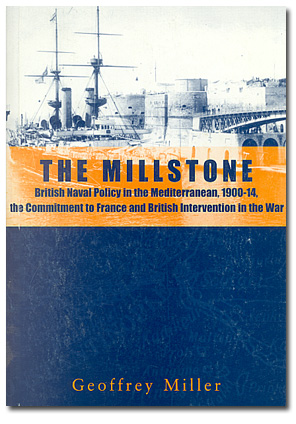 |
The Millstone
British Policy in the Mediterranean,
1900-1914, the Commitment to Franceand
British Intervention in the War
xv + 611 pages
Full bibliography, notes and index
Laminated card cover, 5¾" x 8¼"
ISBN 0 85958 690 1
Published 1999
To go to the dedicated web-site for "The
Millstone", please click:

The full text is available on-line at
www.the-millstone.co.uk
|
 |
| THE MILLSTONE
SYNOPSIS
At half past two on the afternoon of
Sunday, 2 August 1914, Sir Edward Grey, the
Foreign Secretary, informed the French
Ambassador of the decision just reached by
the British Cabinet — despite not yet being
at war with Germany, if, nevertheless, the
German High Seas Fleet ventured out from its
base, the British fleet ‘would intervene …
in such a way that from that moment Great
Britain and Germany would be in a state of
war.’ What led to the giving of this pledge?
Was there an obligation on Britain’s part,
or merely a commitment, moral or otherwise,
to intervene in certain circumstances? The
Foreign Secretary subsequently declared in
his own defence that the promise to the
French ‘did not pledge us to war.’ Grey was,
however, wrong — once the promise was made,
British entry into the war was certain.
Despite this, a group within the Cabinet
spent the afternoon of Sunday 2 August
desperately searching for an issue around
which they could group, and which would
provide a more convenient excuse for British
entry into the war than one based upon a
moral commitment to France; that excuse was
to be Belgian neutrality.
Two things virtually guaranteed British
entry in the war: the secret Anglo-French
military and naval talks, which commenced in
1906, and the naval position in the
Mediterranean. With Austria and Italy both
constructing dreadnoughts, and facing the
German naval challenge, British command of
the Mediterranean could no longer be
guaranteed. Similarly over-extended, the
French were unable to protect both their
Atlantic and Mediterranean coastlines. From
strategic necessity came political
expediency. The Millstone will show:
That Grey was more aware of what was settled
by the secret military conversations than he
pretended to be.
That the situation created by the German
naval programme gave Britain no option other
than to evacuate the Mediterranean.
That Anglo-French naval co-ordination and
strategic planning remained chaotic.
That the Cabinet could not have prevented
Britain’s entry into the war; all they could
have done was to prevent the formation of a
coalition Government.
That the pledge to France and consideration
of British interests were the sole
determinants of Britain’s entry.
That the German promise in August 1914 not
to attack the French coast was irrelevant.
That, far from informing the German
Government of the pledge given to Cambon as
he claimed, Grey was determined to conceal
this fact until Monday, 3 August.
That the issue of Belgian neutrality was
used in August 1914 to assuage consciences
and prevent the formation of a coalition
Government, but was not crucial to the
decision to intervene.
That the Continental policy, committing
British troops to fight in Europe, was
decided upon in August 1911 by a small inner
circle of the Cabinet who knew precisely
what it would entail.
|
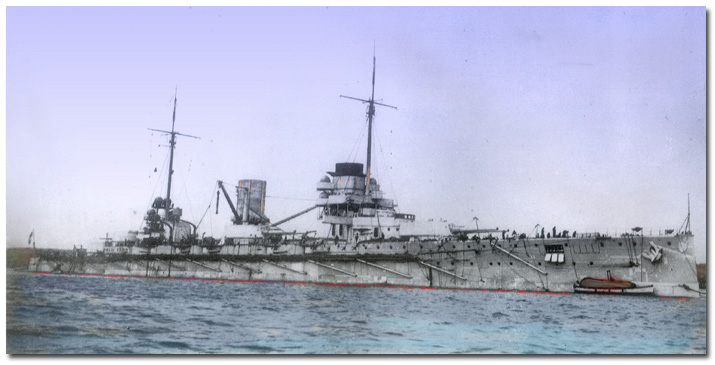
SMS Goeben
The Links Page :
As the range of our activities is so diverse,
we have a number of different websites. The site
you are currently viewing is wholly devoted to
the second of the three non-fiction books
written by Geoffrey Miller, and deals
specifically with British policy towards the
Ottoman Empire and the origins of the
Dardanelles Campaign. The main Flamborough Manor
site focuses primarily on accommodation but has
brief details of all our other activities. To
allow for more information to be presented on
these other activities, there are other
self-contained web-sites. All our web-sites have
a
LINKS
page in common, which allows for easy navigation
between the various sites. To find out where you
are, or to return to the main site, simply go to
the
LINKS
page. |
 |
|

|
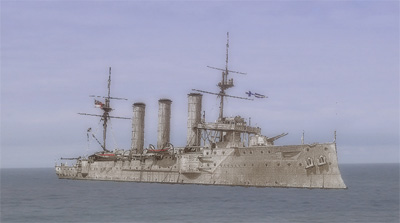
HMS Berwick
[Original artwork © 2004 Geoffrey
Miller] |
|
Geoffrey Miller
can be contacted by:
-
Telephone
- 01262 850943 [International:
+44 1262 850943]
-
Postal address
-
The Manor House,
Flamborough,
Bridlington,
East Riding of Yorkshire, YO15 1PD
United Kingdom.
-
E-mail
-
gm@resurgambooks.co.uk
|
|
|
 |
|
|
|
|
|
|